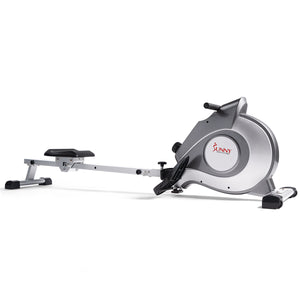RISK FACTORS
Did you know after skin cancer, breast cancer is the most diagnosed cancer in women across the United States? Breast cancer can also occur in men, but it’s much more common in women. While we’ve still yet to defeat cancer for good, the survival rates for breast cancer are steadily increasing, as more research, and earlier detection – largely thanks to self-examination becoming more commonplace – are possible.
There is substantial evidence that modifying your diet may reduce your risk of breast cancer, its progression, or its recurrence. Follow along below with 4 easy steps to improve your lifestyle and diet which may reduce your risk of breast cancer.
Step 1. Maintain a Healthy Weight
There is extensive evidence that obesity is a top risk factor for breast cancer. Research suggests that any weight gain after the age of 18, even a 10 percent increase can strongly increase the chances of breast cancer and cancer recurrence. Therefore, maintaining a healthy weight is an important preventative measure to reduce the risk of breast cancer.
To lose weight or maintain a healthy weight, consider adding exercise as well as healthful nutrition strategies into your regular routine.
Step 2. Eat a Plant-Based Diet
Plant foods are rich in fiber, antioxidants, and phytochemicals. Research suggests that a diet rich in fruits and vegetables may not only decrease your risk of chronic disease such as obesity and heart disease, it may also decrease your risk of breast cancer.
A 2013 study analyzed data from 91,779 women who consumed a variety of diets. The findings suggest a diet rich in plants can decrease breast cancer risk by approximately 15 percent in comparison to the lowest group in plant consumption. These results suggest a plant-based diet can help decrease your risk of breast cancer.
Researchers have also associated Carotenoids (Beta-Carotene found in carrots & Lycopene found in tomatoes) with a lower risk of breast cancer. Because of the unique interaction of carotenoids with cancer cells in this study, it’s thought that carotenoids may interfere with the growth process of cancer cells.
Overall, it’s clear that adding fruits and vegetables into your diet will not only improve your life but may be an important factor in breast cancer prevention. Not sure where to start? Aim to consume at least 6 to 9 servings of vegetables a day.
Step 3. Make Healthy Fat Choices.
The relationship between total fat intake and breast cancer continues to be debated, but there is growing evidence that suggests the type of fat you consume may be the real issue. Studies indicate that diets high in n-6 polyunsaturated fatty acids (PUFA)- found in corn oil – are associated with an increased breast cancer risk.
However, a diet high in oleic acid, a monounsaturated fat found in olive oil, as well as n-3 PUFAs which are present in certain fish do not increase and may even reduce the risk of breast cancer (see source 1, source 2, and source 3).
To focus in on eating healthy fats and minimizing the not-so-healthy fats, follow along with these general recommendations.
Limit:
- Butter or margarine
- Hydrogenated oils
- Full fat dairy
- Fatty meats or skin
Maximize:
- Nuts & seeds
- Olive or avocado oil
- Avocado
- Fatty fish (salmon, anchovies, herring, mackerel, tuna, sardines)
Step 4. Minimize Alcohol Consumption
Finally, there is significant evidence that women who drink alcohol regularly have an increased risk for breast cancer. Moderate alcohol consumption (about 1-2 drinks per day) has been linked to an approximate 30 to 50 percent increased risk in breast cancer.
Furthermore, a meta-analysis of 53 studies revealed that in comparison to women who abstained from alcohol consumption, women who consumed about 3-4 drinks per day saw a 32% increase in relative risk of breast cancer, while those who drank over 4 drinks a day saw a 46 percent increase.
A diet rich in leafy greens, vegetables, fruits, whole grains, and healthy fats with limited alcohol intake is optimal to prevent breast cancer and achieve best health outcomes. What’s so awesome about these strategies is that not only will they help to prevent breast cancer, they’re also an important part of general healthful living and will help to prevent chronic diseases such as diabetes, heart disease, hypertension, and obesity.
- Learn more about Exercising with Cancer here.
- Learn how exercise can impact your risk of breast cancer.
- Here’s how you can support the fight against breast cancer.


























Add Your Name & Email
Please enter your name and email to continue.We won’t display your email publicly.